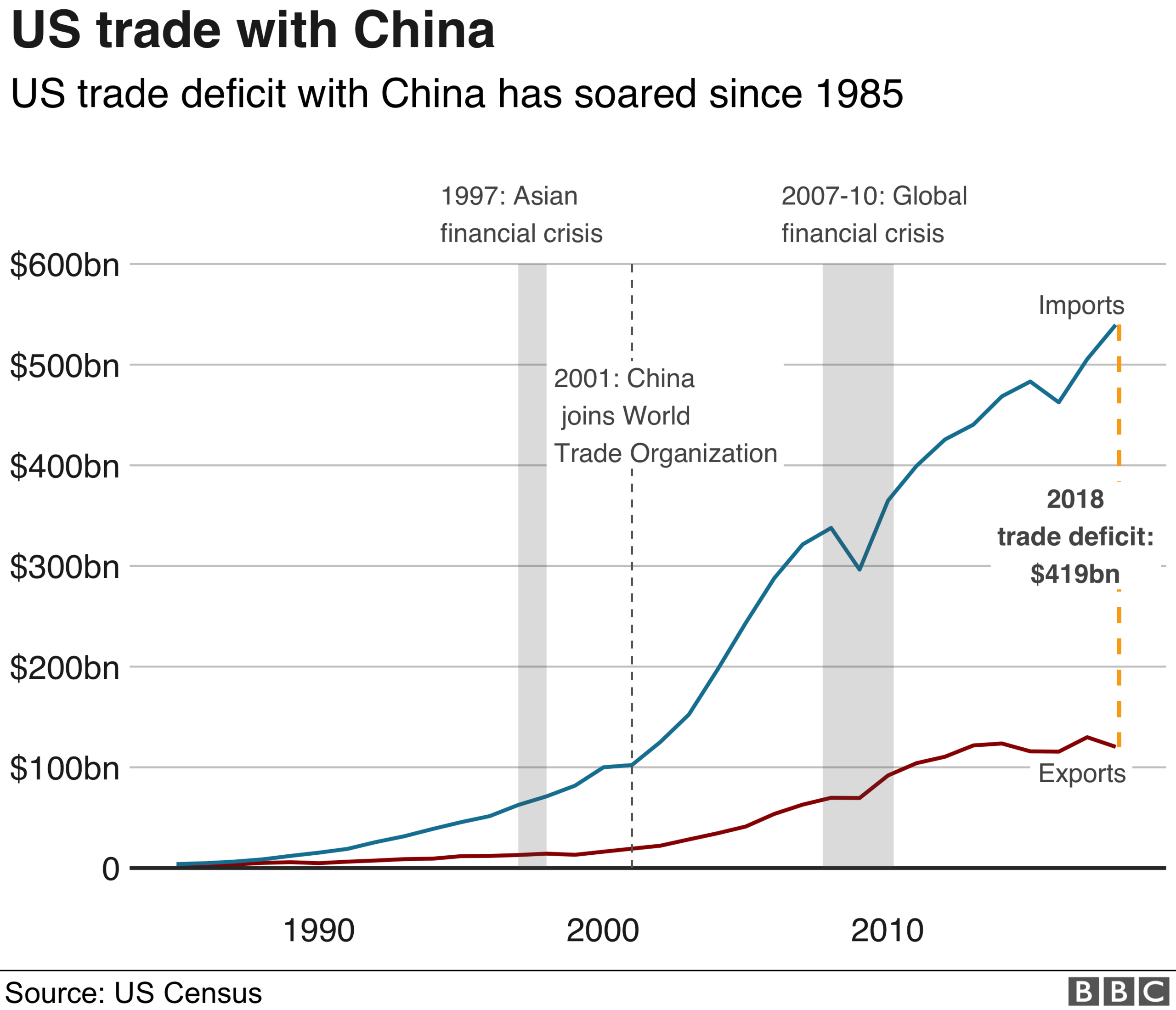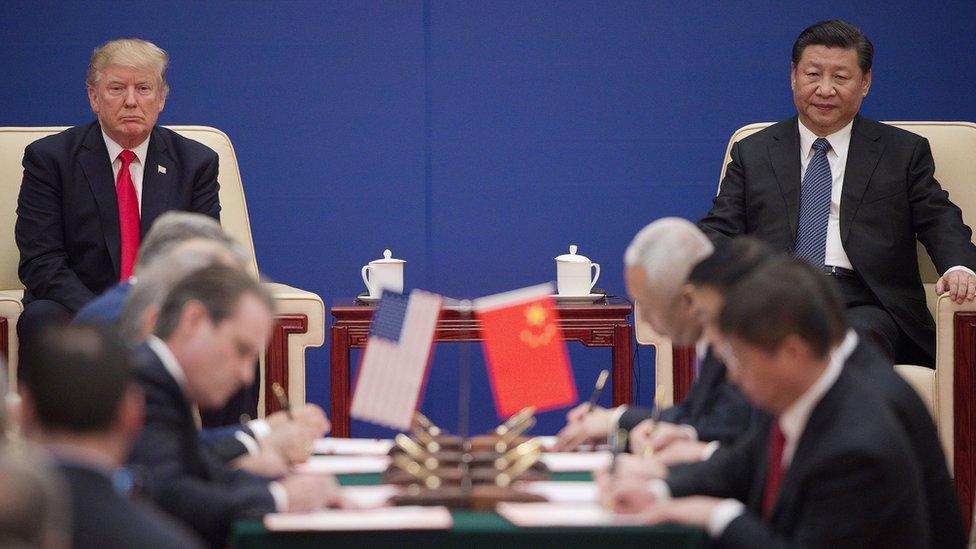US-China trade war: Your questions answered
- Published
Chinese Vice-Premier Liu He says talks should progress in a "principled" manner
As the trade war between the world's two largest economies ramps up, we wanted to know what questions you had about the US-China trade war.
The US has more than doubled tariffs on many Chinese goods, in an escalation of the tensions between the countries.
Here are some of the questions you asked:

Will the trade war between the US and China have an impact on European consumers? - Sylvain Surry, Brest, France
There's no obvious direct impact on European consumers but the conflict is seen as a significant threat to global economic growth.
For one thing, these are the two largest economies in the world and very important markets for many other countries.
If the tariffs weaken them, it means less demand for goods from the rest of the world, Europe included. That could affect European consumers' incomes.
The trade war has weighed on the global economy over the past year and created uncertainty for businesses and consumers.
There is also the possibility of goods being diverted on to global markets, producing some downward pressure on prices in Europe and elsewhere.

Does China have a trade deficit with any nation? Overall, does the US have a balanced world trade ledger? - David Borthwick, New York, US
A trade deficit is the difference between how much a country imports from other countries and how much it exports.
Yes, China has bilateral trade deficits with quite a number of countries.
For example, China buys a lot of vehicles and industrial machinery from Germany, with whom it has a deficit of $27bn (24 euros, £21bn).
There is also a deficit with Australia, which is a major supplier of industrial raw materials, such as coal and iron ore, to China.
China has a trade deficit with several countries in East Asia, including Japan, Thailand, Malaysia and South Korea.
However, China has a trade surplus with the rest of the world as a whole - although that has declined dramatically in recent years.
The US has a trade deficit with China, which has grown since the mid-1980s, hitting $419bn in 2018.

Overall, the US has a trade deficit with the rest of the world - it reached $622bn last year for goods and services.
That's made up of a goods deficit $891 billion, partly offset by a surplus in services of $269 billion.

Who is really paying for the tariffs, the US or China? - Anonymous
The responsibility for actually handing over the money for tariffs is generally with the importer.
However, who actually bears the economic cost is more complicated.
It's certainly possible in principle that the exporter - in this case Chinese enterprises - could "pay" by having to accept a lower price for good, so that the total cost to the importer was unchanged.

Who will pay for the increased tariffs on Chinese imports to the US?
But analysis by two groups of economists found little evidence of that.
Instead they found that "the costs of the new tariff structure were largely passed through as increases in US prices, affecting domestic consumers and producers who buy imported goods rather than foreign exporters".

Will the trade war affect prices through inflation? - Anonymous
The tariffs can affect prices inside the US in a number of ways.
They can add to the cost of imported goods if the tariffs are passed on by exporters. That can increase the prices of goods bought directly by consumers.
It can also lead US manufacturers to raise prices if they use raw materials or components that are subject to the tariffs.
They can also make it easier for producers inside the US who compete with Chinese goods to raise their prices.
Research by economists at Princeton and Columbia Universities and the Federal Reserve suggests all these impacts have been felt.

Produced by George Pierpoint, UGC and Social News team